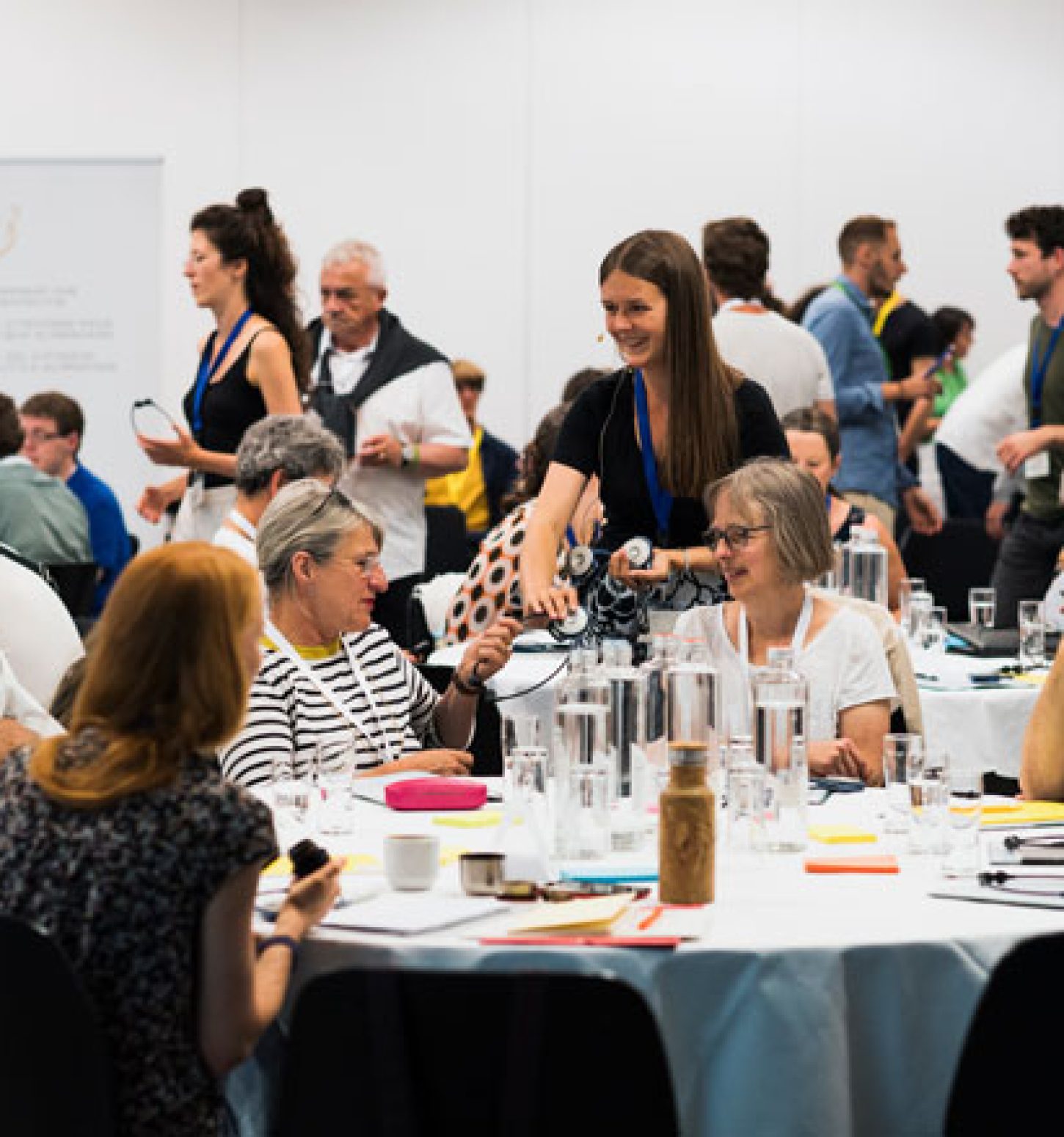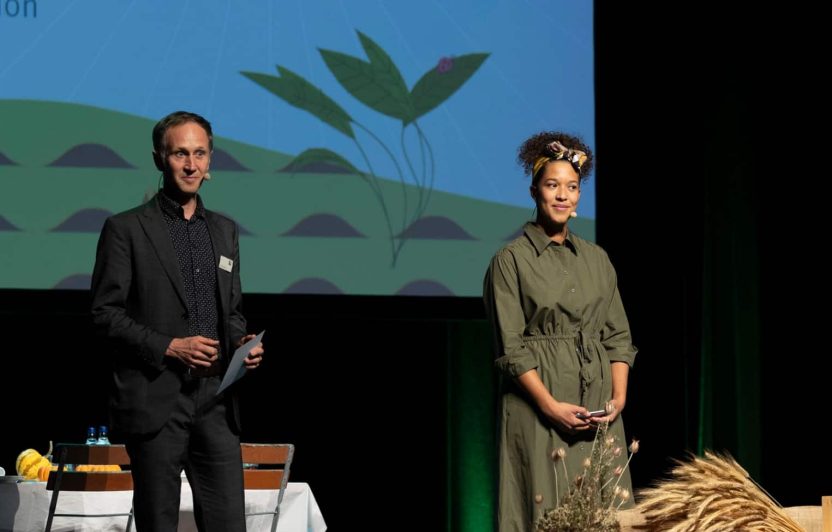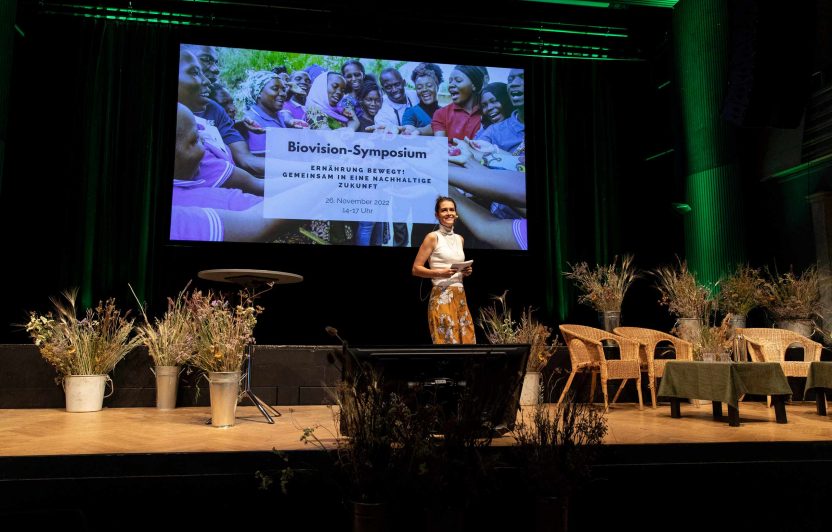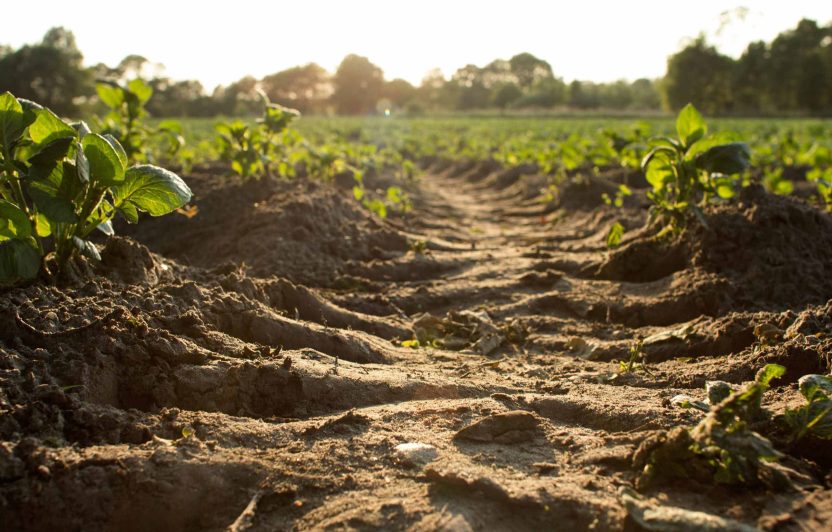What happens when the Swiss population makes recommendations directly to politicians? Around 80 people (randomly selected by a market research institute) grappled with the complex challenges of our food system, from field to fork and beyond, for five months. During the process, the Citizens’ Council for Food Policy received information balanced among different interest groups – such as agricultural producers, processors, retailers, and environmental and consumer organizations – and from experts from the most important Swiss research institutions. Collaboratio Helvetica independently moderated the process, and ETH Zurich provided scientific support.
Pioneering work for the future of agriculture
The result* is both impressive and surprising. Although the debate on the future of agriculture in Switzerland is notoriously polarized and sometimes polemical, the discussions were characterized by a great willingness to value different perspectives and develop viable solutions together. Everyone agreed on an urgent need for action: the way we produce and consume food is a major contributor to biodiversity loss, climate change, water pollution and health problems, and it has huge social costs. Because we import almost half of our food and animal feed, our diet is closely intertwined with problems such as poverty and environmental degradation in the countries where that food comes from.
Viable recommendations with majority support
It is remarkable that the proposals are not aligned along the usual urban–rural or left–right divides. A food policy intended for majority support must not place the brunt of imposed environmental goals on the backs of farmers. The recommendations of the Citizens’ Council are therefore differentiated and take various approaches, for example by educating consumers, changing retailers’ pricing policies, increasingly promoting sustainable agriculture, and supporting research and education in the field of nutrition. Aims include using arable land for human consumption rather than animal feed, increasing Switzerland’s self-sufficiency, and reducing bureaucratic requirements.
For some, the recommendations of the Citizens’ Council do not go far enough; for others, they are too radical. But what distinguishes them is that, through the selection process of the council, they form a good Swiss-style form of compromise. On the whole, they create a path towards majority-supported solutions.
Inspiration for sustainable agricultural policy
Now it is up to the politicians. In its strategy for the future direction of agricultural policy, presented in the summer, the Swiss Federal Council acknowledged the urgent need for action; despite this, the target timeframe by 2050 moves reforms to the back burner. This does not do justice to the seriousness of the situation. We hope that the courage of the Citizens’ Council will encourage Parliament to act holistically. The political divisive battles will get us nowhere, and “business as usual” is not an option.
Swiss Food Policy: Citizens Get Involved
What should a nutrition policy for Switzerland that provides healthy, sustainable, animal-friendly and fairly produced food for all people by 2030 look like?
The detailed recommendations of the Swiss Citizens’ Council for Food Policy are available in German, French and Italian on the website of the Citizens’ Council.
The Citizens’ Council for Food Policy is carried out within the framework of the project “Food Future Switzerland”, which is supported by the Sustainable Development Solution Network Switzerland (SDSN), Landwirtschaft mit Zukunft and Biovision.






